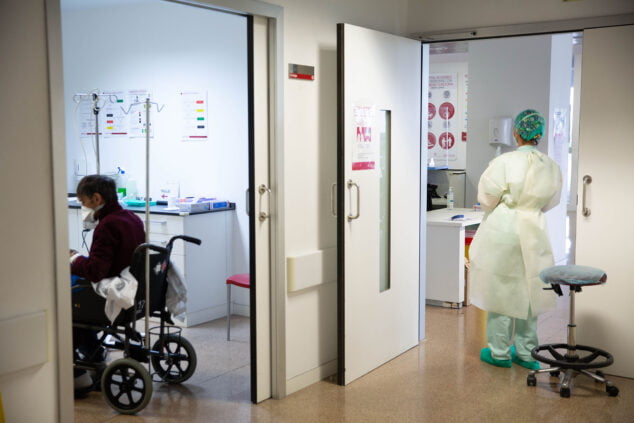Alcohol is the drug most consumed among adolescents and alcohol intoxication "is the most frequent complication of drug use among the youngest". This is stated by Dr. Julio Armas, associate physician at the Vinalopó University Hospital and specialist in Emergencies and Medical Emergencies. “Young people are more susceptible to the adverse effects of alcohol consumption. Specifically, in the group of those under 15 years of age, the appearance of ethyl poisoning is more frequent, and its complications are more serious ”, explains Dr. Armas in the face of the New Year's Eve celebrations.
The Vinalopó Hospital specialist defines alcohol intoxication as "the increase in the ethanol content in the blood above the levels tolerated by each person, abruptly and that includes from mild disinhibition to depression, coma and death" . On the other hand, he adds, the ethyl coma, "a term with which excessive alcohol consumption is popularly identified, refers to the more advanced phases, where loss of consciousness, lack of response to stimuli and respiratory depression appears" .
The director of Primary Care of the Hospital de Dénia, Dr. Antonio Barceló, explains for his part that the trend in the last 10 years points to consumption in profiles "increasingly young, increasing the incidence in women." "The appearance of abusive consumption at an earlier age is associated with the false myth of the normalization of adverse effects, since most of the time they are mild and temporary," insists Dr. Armas. "The European average is 15.9 years," he adds. For the medical director of Ribera Hospital de Molina, Dr. Eduardo Rodríguez de la Vega, alcohol is "toxic to the central nervous system." For this reason, he adds, "its consumption in moderate amounts produces disinhibition and this is associated with initial euphoria, but when its accumulation in the blood exceeds the ability to metabolize this substance, the loss of cognitive faculties begins that can lead to coma."
The head of the Emergency Department at the Ribera Povisa hospital, Dr. Ángel Martín Joven, assures that alcohol intoxication has an effect that is directly proportional to its serum concentration, which, in turn, depends on factors such as the speed of intake and units ingested. , if the stomach has food, the body mass and the proportion of water in the organism or even genetic factors that influence the more or less slow metabolization of alcohol ”. “Depending on the amount of alcohol ingested and, therefore, its blood levels, initially a euphoric sensation is produced, which leads to an alteration in motor capacity, lack of coordination, loss of judgment and finally, loss of consciousness or coma due to alcohol in the central nervous system ”, explains Dr. Martín Joven, who points out other serious alterations such as a severe drop in blood glucose levels, hypothermia, cardiac arrhythmias, seizures or kidney failure.
Dr. Rodríguez de la Vega insists that the ethyl coma produced by severe alcohol intoxication "can lead to death." "Its depressive action on the central nervous system can compromise vital centers, such as the respiratory, and make the patient fall into cardiorespiratory arrest." The main thing, in the domestic sphere, he explains, is "not to underestimate the possible complications of an alcoholic coma by mistakenly thinking that an individual who has ingested alcoholic beverages and is not conscious, will recover." "This person may be in an alcoholic coma and due to ignorance of those around him, complications that can be lethal are overlooked," he adds.
Along these same lines, Dr. Julio Armas pronounces: "The symptoms associated with consumption, with the false label of the drunkard, should not be underestimated, because the appearance of serious clinical pictures can be rapid and potentially lethal." And it goes further. "The most important thing is to establish a limit at the beginning of consumption or with the appearance of the first symptoms, which will serve to avoid future complications," he explains, and go to a health center "if the person is confused, dazed, with shortness of breath or relaxation of sphincters, with persistent vomiting, has suffered a fall or has language disturbances ”. Of course, also, with respiratory depression or signs of an alcoholic coma.
In severe cases of alcohol intoxication, specialists recommend going to a health center or requesting urgent medical attention, but while placing the patient in a lateral safety position (left lateral decubitus) avoiding the closure of the airway if vomiting occurs, as well as possible contusions from involuntary movements and falls. In addition, they insist on the importance of maintaining a good body temperature of the affected person, cover with a dry blanket to prevent hypothermia and keep the patient under surveillance until the arrival of medical assistance.








They simply repeat the learned behaviors by imitating their parents throughout the battery of parties they have. Since they were little they are already trained to be the next partygoers.